In Focus This Week
A Look at Legislation
Utah SB194 aims to strengthen the election process and increase public trust
By M. Mindy Moretti
electionline.org
(Editor’s Note: Beginning this week we’ll be taking a closer look at some state-level election administration legislation – good or bad. If your state is working on legislation that you find “interesting” feel free to let us know and we’ll “take a look”.)
Voters must be able to have confidence that the officials who run elections are neutral referees acting only to uphold the law.
Potential conflicts of interest can erode this trust, particularly in the current media environment where alleged bad acts receive widespread and often exaggerated attention with national implications.
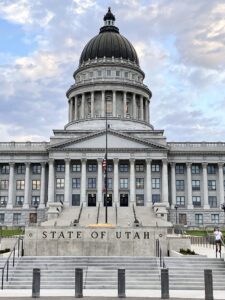 Enter Utah Senate Bill 194.
Enter Utah Senate Bill 194.
“Utah’s audits continue to show that our elections are secure. We have outstanding election officials across the state who work diligently to protect the integrity of the process,” said Senator Michael McKell (R-District 25). “However, there is always room for improvement, and public confidence in elections has declined in recent years. This bill aims to strengthen the election process and increase public trust.”
This bill aims to address critical issues regarding the neutrality of election officials. McKell worked with the Election Reformers Network on the legislation.
“ERN became aware that Senator McKell had an interest in thinking creatively about solutions to the challenges and conflicts of interest in our election system,” said Kevin Johnson, founding executive director of ERN. “That led us to reach out, and we quickly found like-mindedness about practical solutions.”
Johnson noted that in Utah there’s some history of steps taken by lieutenant governors, including current Governor Spencer Cox, to voluntarily recuse themselves from certain decisions when running for office. That made ERN think this was a good state to encourage codifying positive norms into law.
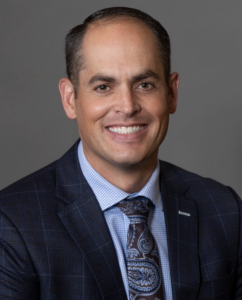
Utah Senator Michael McKell.
According to Johnson, SB 194 sets clearer guardrails for situations where the people administering elections also have political interests in the outcome. With this bill, Utah is leading the way on addressing conflicts of interest in election administration. Nationally, few states have laws or codes of conduct addressing election official recusal.
Key reform 1: County clerks must stay neutral in their official role. SB 194 prohibits a clerk, acting “in the clerk’s capacity,” from taking actions that show partiality or discrimination for or against a candidate, someone seeking candidacy, a ballot measure, or a proposed ballot measure.
Key reform 2: The lieutenant governor must publish a conflict-of-interest avoidance plan, which is important for continuity of office functioning and transparency for voters. SB 194 changes the incentives from reactive to proactive. Instead of scrambling after a controversy, the lieutenant governor must map out potential conflicts ahead of time, explain the approach publicly, and identify who steps in when recusal is appropriate.
Before Aug. 31, 2026, the lieutenant governor must create a written plan that:
- identifies decisions or actions that could influence, or appear to influence, the lieutenant governor’s candidacy;
- lays out steps to mitigate or avoid conflict, including possible recusal and naming who would step in; and
- also explains which decisions are not conflicts and why.
The plan must be sent to the Government Operations Interim Committee, presented if requested, and kept available for public review on the lieutenant governor’s website. Future lieutenant governors must adopt or create a plan, update it as needed, and comply with it.
According to Johnson, this does not automatically sideline the lieutenant governor and it does not require a blanket recusal from every election decision. The plan can include recusal and a designee where appropriate, but it also explicitly requires the lieutenant governor to identify decisions that are not conflicts and explain why.
The current and former Utah lieutenant governors have developed voluntary recusal plans. SB 194 takes what has been done voluntarily and makes it durable, standard practice no matter who holds the office.
Key reform 3: If a county clerk is running for reelection, certain election-related duties get handled by another clerk. In races where an incumbent county clerk is running for reelection, the incumbent must contract with another county clerk for specified responsibilities relating to candidate signature processes, and must quickly transfer signature packets and related documents to that other clerk.
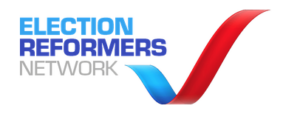 The bill received overwhelming, bipartisan support with only two dissenting votes, showing broad consensus around these policies. According to McKell, the two senators who voted against the bill did not make their reason clear for doing so. The legislation is now in the House.
The bill received overwhelming, bipartisan support with only two dissenting votes, showing broad consensus around these policies. According to McKell, the two senators who voted against the bill did not make their reason clear for doing so. The legislation is now in the House.
“We have a strong floor sponsor in the House, and there is general recognition that these policies will help election officials and increase public confidence,” McKell said. “Based on the Senate vote, we feel optimistic about its progress in the House.”
We reached out to Lt. Governor Deidre Hall’s office and a spokesperson said that the Lt. Governor’s office does not typically comment on pending legislation.
According to Johnson at ERN, they’ve had some positive initial responses about introducing similar legislation in the next state they approached, though he wanted to hold off on any specifics at this point.
“Also, we are talking with some secretaries of state who are candidates this year about voluntarily implementing elements of the conflict-of-interest avoidance program in the bill, and that’s gaining traction,” Johnson said. “These officials recognize that even though many secretaries of state have run for office in the past without problem or incident, it’s better to err on the side of doing more to increase public confidence in elections.”
electionline Daily News Email
 What’s the best part of waking up? electionline Daily News in your inbox of course so be sure to sign up for your daily dose.
What’s the best part of waking up? electionline Daily News in your inbox of course so be sure to sign up for your daily dose.
Each morning you’ll receive the top headlines of the day, plus a listing of states featured in that day’s news round up.
To sign up, simply visit our site and provide us with your email and you’ll begin receiving the news in your inbox each morning.
We Google so you don’t have to!
electionline Merch
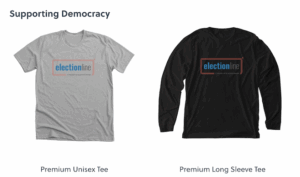 You’ve asked for it, well now you’ve got it! Just in time for all of your holiday gift-giving. We’ve opened up an electionline merch store using Bonfire. Currently we’re offering a couple of different t-shirts, a long-sleeve t-shirt and a hoodie.
You’ve asked for it, well now you’ve got it! Just in time for all of your holiday gift-giving. We’ve opened up an electionline merch store using Bonfire. Currently we’re offering a couple of different t-shirts, a long-sleeve t-shirt and a hoodie.
Election News This Week
 Federal Update: On the heels of the president’s State of the Union, state elections officials met with representatives from the Department of Homeland Security and the FBI this week to discuss election security for the 2026 election cycle. During the call, a senior DHS official stated that Immigration and Customs Enforcement agents would not be patrolling polling places during this year’s midterm elections. “Any suggestion that ICE is going to be present at polling places is simply disinformation,” said Heather Honey, DHS assistant secretary for election integrity, according to a participant on the call who spoke to NPR on the condition of anonymity. “There will be no ICE presence at polling locations.” Kentucky Republican Secretary of State Michael Adams confirmed the promise in a social media post as well. Heather Honey, who serves as deputy assistant secretary for election integrity, told the group of secretaries of state that “any suggestion that ICE will be present at any polling location is simply not true,” according to a statement from Arizona Secretary of State Adrian Fontes, a Democrat. A spokeswoman for Oregon Secretary of State Tobias Read also said Honey made the pledge. The Department of Homeland Security did not respond to a request for comment. California’s secretary of state, Democrat Shirley Weber, asked Honey, the DHS official, whether states would have advance notice if ICE agents were sent to polling places. Honey responded by saying such a premise was “disinformation.” In other DHS news, according to a report from CNN, DHS is doubling down on the administration’s ongoing investigations into potential voter fraud — reviewing cases involving US citizens and whether they registered to vote, or voted, prior to being naturalized, according to an internal memo. The memo, distributed to leadership last week, states that Homeland Security Investigations’ Identity and Benefit Fraud Unit is overseeing the initiative “designed to identify, investigate, and disrupt activities that undermine the integrity of federal, state, and local elections, and to ensure compliance with applicable election laws.” It also requested that HSI offices “review all open and closed voter fraud cases… and identify any person(s) who registered to vote, and/or voted in any federal, state, or local election, and subsequently became naturalized United States citizens.”
Federal Update: On the heels of the president’s State of the Union, state elections officials met with representatives from the Department of Homeland Security and the FBI this week to discuss election security for the 2026 election cycle. During the call, a senior DHS official stated that Immigration and Customs Enforcement agents would not be patrolling polling places during this year’s midterm elections. “Any suggestion that ICE is going to be present at polling places is simply disinformation,” said Heather Honey, DHS assistant secretary for election integrity, according to a participant on the call who spoke to NPR on the condition of anonymity. “There will be no ICE presence at polling locations.” Kentucky Republican Secretary of State Michael Adams confirmed the promise in a social media post as well. Heather Honey, who serves as deputy assistant secretary for election integrity, told the group of secretaries of state that “any suggestion that ICE will be present at any polling location is simply not true,” according to a statement from Arizona Secretary of State Adrian Fontes, a Democrat. A spokeswoman for Oregon Secretary of State Tobias Read also said Honey made the pledge. The Department of Homeland Security did not respond to a request for comment. California’s secretary of state, Democrat Shirley Weber, asked Honey, the DHS official, whether states would have advance notice if ICE agents were sent to polling places. Honey responded by saying such a premise was “disinformation.” In other DHS news, according to a report from CNN, DHS is doubling down on the administration’s ongoing investigations into potential voter fraud — reviewing cases involving US citizens and whether they registered to vote, or voted, prior to being naturalized, according to an internal memo. The memo, distributed to leadership last week, states that Homeland Security Investigations’ Identity and Benefit Fraud Unit is overseeing the initiative “designed to identify, investigate, and disrupt activities that undermine the integrity of federal, state, and local elections, and to ensure compliance with applicable election laws.” It also requested that HSI offices “review all open and closed voter fraud cases… and identify any person(s) who registered to vote, and/or voted in any federal, state, or local election, and subsequently became naturalized United States citizens.”
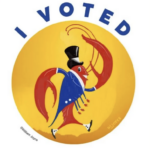 New Equipment: The current voting equipment in Louisiana is old enough to be eligible to be president (35 years old) and state elections officials have been wrangling with state legislators to purchase a new system for years. This week, Secretary of State Nancy Landry said that $25 million more is needed to cover the $100 million to replace the statewide system. The system would consist of new touchscreen voting machines that print paper ballots and have climate-controlled facilities for storage. Additional expenses would maintain cybersecurity protections and allow for risk-limiting audits, which are considered the top standard for voter integrity. “Louisiana voters have consistently indicated that they want a system that combines the speed of modern technology with the security of a voter-verifiable paper ballot, as required by state law,” Landry told the Senate Finance Committee. The paper ballots will allow voters to verify their choices before casting. The new voting system will slowly phase out the older machines before completely taking over. Six certified vendors are being considered for new machinery. No vendor has been selected, but the secretary of state’s hope is to have one before the end of the year. Landry said manufacturers no longer make replacement parts for the current machines. Parts are often cannibalized from other machines. “Simply put, the system has reached the end of its life cycle,” she said.
New Equipment: The current voting equipment in Louisiana is old enough to be eligible to be president (35 years old) and state elections officials have been wrangling with state legislators to purchase a new system for years. This week, Secretary of State Nancy Landry said that $25 million more is needed to cover the $100 million to replace the statewide system. The system would consist of new touchscreen voting machines that print paper ballots and have climate-controlled facilities for storage. Additional expenses would maintain cybersecurity protections and allow for risk-limiting audits, which are considered the top standard for voter integrity. “Louisiana voters have consistently indicated that they want a system that combines the speed of modern technology with the security of a voter-verifiable paper ballot, as required by state law,” Landry told the Senate Finance Committee. The paper ballots will allow voters to verify their choices before casting. The new voting system will slowly phase out the older machines before completely taking over. Six certified vendors are being considered for new machinery. No vendor has been selected, but the secretary of state’s hope is to have one before the end of the year. Landry said manufacturers no longer make replacement parts for the current machines. Parts are often cannibalized from other machines. “Simply put, the system has reached the end of its life cycle,” she said.
 Election Observers: The Gerald R. Ford Presidential Foundation and The Carter Center have announced a partnership to conduct nonpartisan election observation of Michigan’s Nov. 3, 2026, midterm elections. The Ford-Carter Election Observation Network (FCEON) will monitor critical stages of the election process and assess the quality of the elections to increase transparency and trust in Michigan’s elections. The initiative will train and support Michiganders to serve as
Election Observers: The Gerald R. Ford Presidential Foundation and The Carter Center have announced a partnership to conduct nonpartisan election observation of Michigan’s Nov. 3, 2026, midterm elections. The Ford-Carter Election Observation Network (FCEON) will monitor critical stages of the election process and assess the quality of the elections to increase transparency and trust in Michigan’s elections. The initiative will train and support Michiganders to serve as  nonpartisan election observers throughout the state to assess whether election laws and procedures are consistently and accurately followed. The election observers will document how those procedures are implemented, impartially and accurately reporting what they see using structured forms and standardized observation tools. Their reports will be aggregated to provide a detailed, data-driven assessment about the integrity of elections in Michigan. “This partnership builds on a longstanding legacy of collaboration between my grandfather and President Ford, who ran against each other in 1976, but went on to cultivate a genuine friendship and collaborate on many bipartisan initiatives to benefit the American people,” said Jason Carter, chair of the Carter Center’s board of trustees. “I am proud to continue that legacy of cross-partisan collaboration with my friend, Mike Ford, and the Gerald R. Ford Presidential Foundation.”
nonpartisan election observers throughout the state to assess whether election laws and procedures are consistently and accurately followed. The election observers will document how those procedures are implemented, impartially and accurately reporting what they see using structured forms and standardized observation tools. Their reports will be aggregated to provide a detailed, data-driven assessment about the integrity of elections in Michigan. “This partnership builds on a longstanding legacy of collaboration between my grandfather and President Ford, who ran against each other in 1976, but went on to cultivate a genuine friendship and collaborate on many bipartisan initiatives to benefit the American people,” said Jason Carter, chair of the Carter Center’s board of trustees. “I am proud to continue that legacy of cross-partisan collaboration with my friend, Mike Ford, and the Gerald R. Ford Presidential Foundation.”
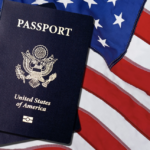 Vital Records: WRGB in New York has a story about how long it is taking some New Yorkers to receive vital records, such as birth certificates, and the implication that may have on voting rights should the SAVE Act be approved by the Senate. Some residents have reported months-long waits for vital records they requested from the state, raising concerns about how quickly individuals could comply if proof of citizenship becomes mandatory. Memory Burcalow said she requested a certified copy of her birth certificate from the New York State Bureau of Vital Records on March 26, 2025. Nearly a year later, she said she has yet to receive it. With the delays, state officials are urging residents to check with the town or city where they were born to see if they can provide the document. “I put the request in on March 26th of 2025,” Burcalow said. “With the SAVE Act looking like it’s going to pass, I’m going to need to prove citizenship.”
Vital Records: WRGB in New York has a story about how long it is taking some New Yorkers to receive vital records, such as birth certificates, and the implication that may have on voting rights should the SAVE Act be approved by the Senate. Some residents have reported months-long waits for vital records they requested from the state, raising concerns about how quickly individuals could comply if proof of citizenship becomes mandatory. Memory Burcalow said she requested a certified copy of her birth certificate from the New York State Bureau of Vital Records on March 26, 2025. Nearly a year later, she said she has yet to receive it. With the delays, state officials are urging residents to check with the town or city where they were born to see if they can provide the document. “I put the request in on March 26th of 2025,” Burcalow said. “With the SAVE Act looking like it’s going to pass, I’m going to need to prove citizenship.”
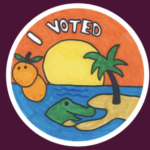 Sticker News: Aeva from Riverdale Elementary won Orange County, Florida’s “I Voted” sticker contest. Her design will appear on stickers distributed to voters in the upcoming March municipal elections in Eatonville, Apopka, Maitland, and Oakland. Orange County Supervisor of Elections Karen Castor Dentel announced the winner at a reception at her office. Nearly 3,000 students in grades 2-5 from eight Orange County Public elementary schools entered the contest, and the Supervisor of Elections office selected 12 finalists, which you can see at the end of this post. Aeva’s winning design features an orange representing Orange County, an alligator in water, a palm tree, and a sun. The text “I VOTED” curves along the top of the circular sticker. “When children learn that their voices matter, they grow into adults who vote, lead,
Sticker News: Aeva from Riverdale Elementary won Orange County, Florida’s “I Voted” sticker contest. Her design will appear on stickers distributed to voters in the upcoming March municipal elections in Eatonville, Apopka, Maitland, and Oakland. Orange County Supervisor of Elections Karen Castor Dentel announced the winner at a reception at her office. Nearly 3,000 students in grades 2-5 from eight Orange County Public elementary schools entered the contest, and the Supervisor of Elections office selected 12 finalists, which you can see at the end of this post. Aeva’s winning design features an orange representing Orange County, an alligator in water, a palm tree, and a sun. The text “I VOTED” curves along the top of the circular sticker. “When children learn that their voices matter, they grow into adults who vote, lead, 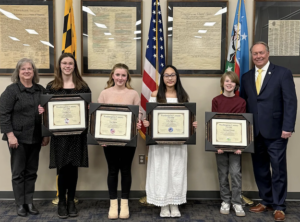 and care for their community,” Castor Dentel said. “That’s how we build lifelong voters.” Young artists across Washington County, Maryland turned ballots into inspiration as the county Board of Elections revealed the student winners behind its first-ever “I Voted” sticker designs released Feb. 24. The contest invited K-12 students in public, private and home schools to submit artwork celebrating voting, according to a community announcement. More than 30 entries were submitted across four categories, with finalists posted online for a public vote. The winners were honored during a ceremony at the Board of Elections headquarters in Hagerstown, where each student received a framed certificate featuring the first printed sticker from their design. Election Director Barry Jackson said the contest has long been a goal of the Board to help engage young residents in elections. “While we could only select one winner per category, all students should be proud of their work,” he said. And in Alaska, where the state works with local artists to create their unique “I Voted” stickers each election cycle, a local television station has a story about the artist–Amanda Rose Warren–who is currently working on the new design. “It kind of makes my whole body tingle out of excitement,” Warren said. “This just makes me really humbled and happy.” Her designs are expected to highlight Alaska wildlife with bold, playful colors — and possibly a nod to America’s 250th birthday. Early concepts include a moose standing in fireweed, a humpback whale swimming alongside fish, and a muskox surrounded by tundra brush and blueberries.
and care for their community,” Castor Dentel said. “That’s how we build lifelong voters.” Young artists across Washington County, Maryland turned ballots into inspiration as the county Board of Elections revealed the student winners behind its first-ever “I Voted” sticker designs released Feb. 24. The contest invited K-12 students in public, private and home schools to submit artwork celebrating voting, according to a community announcement. More than 30 entries were submitted across four categories, with finalists posted online for a public vote. The winners were honored during a ceremony at the Board of Elections headquarters in Hagerstown, where each student received a framed certificate featuring the first printed sticker from their design. Election Director Barry Jackson said the contest has long been a goal of the Board to help engage young residents in elections. “While we could only select one winner per category, all students should be proud of their work,” he said. And in Alaska, where the state works with local artists to create their unique “I Voted” stickers each election cycle, a local television station has a story about the artist–Amanda Rose Warren–who is currently working on the new design. “It kind of makes my whole body tingle out of excitement,” Warren said. “This just makes me really humbled and happy.” Her designs are expected to highlight Alaska wildlife with bold, playful colors — and possibly a nod to America’s 250th birthday. Early concepts include a moose standing in fireweed, a humpback whale swimming alongside fish, and a muskox surrounded by tundra brush and blueberries.
Personnel News: Shelia Nix is the new CEO of the Mobile Voting Project. Scott Petersen, an Omaha businessman, has announced his candidacy for Nebraska secretary of state. Longtime Portsmouth, New Hampshire Clerk Kelli Barnaby will retire at the start of March. Wausau City, Wisconsin Clerk Kaitlyn Bernarde will resign following the Spring Election. Ron Herring has been named as the director of election security and enforcement for the North Carolina State Board of Elections. Knox County Clerk David Shelton has become the first Republican candidate to run for the Indiana Secretary of State’s office. Commissioner Thomas Hicks began his year-long term as Chairman of the U.S. Election Assistance Commission (EAC). Commissioner Christy McCormick will serve as Vice Chair. Lonoke County, Arkansas Clerk Dawn Porterfield resigned this week. Navajo County, Arizona Recorder Tim Jordan has announced his resignation. Idaho Secretary of State Phil McGrane announced his re-election campaign this week.
Ballot Measures, Legislation & Rulemaking
 Federal Legislation: Rep. Seth Moulton (MA-06) introduced the Defend Elections from Trump Act, which would prohibit the use of federal funds to deploy federal law enforcement, intelligence personnel, or the military to polling locations without explicit authorization from Congress. The Defend Elections from Trump Act would preserve Congress’s constitutional authority by requiring specific statutory authorization for any such federal presence at domestic election locations. In doing so, the bill would protect voters’ right to cast a ballot free from intimidation or coercion. The introduction of this bill comes in response to Donald Trump’s recent calls for the federalization of elections, a proposal that would undermine the long-standing authority of state and local officials to administer free and fair elections. “Election security is vitally important,” said Moulton.“But Donald Trump wants to undermine democracy itself. Voters must be able to cast their ballots without intimidation, without threats, and without armed federal personnel standing over their shoulders. That’s not how democracy should work.”
Federal Legislation: Rep. Seth Moulton (MA-06) introduced the Defend Elections from Trump Act, which would prohibit the use of federal funds to deploy federal law enforcement, intelligence personnel, or the military to polling locations without explicit authorization from Congress. The Defend Elections from Trump Act would preserve Congress’s constitutional authority by requiring specific statutory authorization for any such federal presence at domestic election locations. In doing so, the bill would protect voters’ right to cast a ballot free from intimidation or coercion. The introduction of this bill comes in response to Donald Trump’s recent calls for the federalization of elections, a proposal that would undermine the long-standing authority of state and local officials to administer free and fair elections. “Election security is vitally important,” said Moulton.“But Donald Trump wants to undermine democracy itself. Voters must be able to cast their ballots without intimidation, without threats, and without armed federal personnel standing over their shoulders. That’s not how democracy should work.”
Rep. Veronica Escobar, D-Texas, introduced the Stop ICE Election Militarization Act alongside Reps. John Larson of Connecticut and Nikema Williams of Georgia. The bill is intended to protect elections from what Escobar’s office describes as illegal interference by U.S. Immigration and Customs Enforcement. The legislation follows President Donald Trump’s threats to “nationalize elections” and a call from Trump adviser Steve Bannon to deploy ICE agents to polling places. According to Escobar’s office, the Stop ICE Election Militarization Act would explicitly prevent immigration enforcement entities, including ICE, from being deployed at polling places and would create criminal penalties for officers who violate the law. The proposal would also ban non-targeted, non-criminal immigration enforcement operations, such as traffic stops, within four weeks of an election, with the stated goal of preventing widespread intimidation of communities.
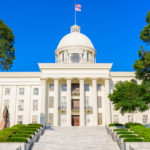 Alabama: On February 19, the Senate passed a bill that would streamline the process for formerly incarcerated Alabamians to get their voting rights restored. SB 24, sponsored by Sen. Linda Coleman-Madison, D-Birmingham, requires the Alabama Board of Pardons and Paroles and the Secretary of State to develop a website with instructions on how a formerly incarcerated person “may have their right to vote restored” in an easily accessible manner. The bill would require the Board of Pardons and Paroles, starting in March 2027, to publish a list of names that have qualified to have their voting rights restored and the county in which they reside. The board must also submit the list to the Secretary of State, who must then publish the list on its website. Cam Ward, director of the Board of Pardons and Paroles, said in a statement that the legislation will help the board continue its efforts to increase awareness on the restoration of voting rights process. “The right to vote is one of the most sacred American privileges. As part of our duty to ensure success for Alabamians reentering society following prison or probation, the Bureau will continue working with the Board to streamline the Certificate of Eligibility to Register to Vote process,” he said in a statement.
Alabama: On February 19, the Senate passed a bill that would streamline the process for formerly incarcerated Alabamians to get their voting rights restored. SB 24, sponsored by Sen. Linda Coleman-Madison, D-Birmingham, requires the Alabama Board of Pardons and Paroles and the Secretary of State to develop a website with instructions on how a formerly incarcerated person “may have their right to vote restored” in an easily accessible manner. The bill would require the Board of Pardons and Paroles, starting in March 2027, to publish a list of names that have qualified to have their voting rights restored and the county in which they reside. The board must also submit the list to the Secretary of State, who must then publish the list on its website. Cam Ward, director of the Board of Pardons and Paroles, said in a statement that the legislation will help the board continue its efforts to increase awareness on the restoration of voting rights process. “The right to vote is one of the most sacred American privileges. As part of our duty to ensure success for Alabamians reentering society following prison or probation, the Bureau will continue working with the Board to streamline the Certificate of Eligibility to Register to Vote process,” he said in a statement.
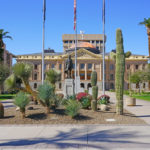 Arizona: According to the Arizona Mirror, people packed into a Senate Committee room on February 20, waiting hours to protest a Republican plan to station federal immigration officers at Arizona polling places in November. But those protestors were disappointed when the measure was suddenly spiked at the end of the six-hour meeting because its sponsor was ill, according to Senate Judiciary and Elections Committee Chairwoman Wendy Rogers. The failure to hear the bill in the committee on Friday likely kills the specific piece of legislation, though the idea is likely to be resurrected. February 20 was the deadline for legislative committees to consider legislation in its chamber of origin. But there are parliamentary moves that allow proposals that failed to be revived. The news that Senate Bill1570 wouldn’t be heard came after numerous members of the protest group, organized by Living United for Change in Arizona, were denied entry to the Senate with little explanation in a move that LUCHA said was blatantly racist. The proposal that the protestors targeted would force all 15 Arizona counties to enter into agreements with federal immigration enforcement agencies to post agents at all polling places and ballot drop boxes “during all hours in which voting is conducted or ballots are deposited” during the midterm election in November.
Arizona: According to the Arizona Mirror, people packed into a Senate Committee room on February 20, waiting hours to protest a Republican plan to station federal immigration officers at Arizona polling places in November. But those protestors were disappointed when the measure was suddenly spiked at the end of the six-hour meeting because its sponsor was ill, according to Senate Judiciary and Elections Committee Chairwoman Wendy Rogers. The failure to hear the bill in the committee on Friday likely kills the specific piece of legislation, though the idea is likely to be resurrected. February 20 was the deadline for legislative committees to consider legislation in its chamber of origin. But there are parliamentary moves that allow proposals that failed to be revived. The news that Senate Bill1570 wouldn’t be heard came after numerous members of the protest group, organized by Living United for Change in Arizona, were denied entry to the Senate with little explanation in a move that LUCHA said was blatantly racist. The proposal that the protestors targeted would force all 15 Arizona counties to enter into agreements with federal immigration enforcement agencies to post agents at all polling places and ballot drop boxes “during all hours in which voting is conducted or ballots are deposited” during the midterm election in November.
Republicans advanced a proposal that — if approved by voters — would limit when and where voters can cast their ballots. Most Arizona counties use voting centers. With that model, residents can cast a ballot at any vote center they choose in their area. HCR2016 passed out of the state House of Representatives this week and would do away with that model in favor of precinct-based polling places. In that system, residents would be required to vote only at one specific location in a smaller area. It would also do away with the option to vote early in person at those locations.
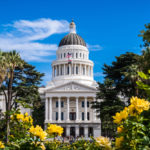 California: A bill introduced last week by California lawmakers would ban federal immigration agents from being stationed outside polling places, responding to concerns that Immigration and Customs Enforcement (ICE) officers could interfere with voting during the November midterm elections. The legislation was introduced on February 19 by state senator Tom Umberg and co-authored by state senator Sabrina Cervantes. Umberg said the measure aimed to safeguard voters from “ruthless intimidation” near polling locations. “A person shall not perform any act for the purpose of, or in furtherance of, the enforcement of federal immigration laws while within 200 feet of any polling place, county elections office, or location at which ballots are being counted, canvassed, audited, certified, or recounted,” reads the bill. If approved by the legislature and signed by Gavin Newsom, California’s governor, the bill would also expand protections for voters. It would allow counties to open vote centers earlier, increase ballot drop boxes and extend polling hours if immigration enforcement disrupts voting. The bill would also expand buffer zones around voting sites, where political activity is not allowed, from 100ft to 200ft. “This measure has nothing to do with protecting fake or illegal votes,” Umberg said in a post on X. “This is about safeguarding lawful voters from the kind of ruthless intimidation used by authoritarian regimes around the world to unlawfully influence elections.”
California: A bill introduced last week by California lawmakers would ban federal immigration agents from being stationed outside polling places, responding to concerns that Immigration and Customs Enforcement (ICE) officers could interfere with voting during the November midterm elections. The legislation was introduced on February 19 by state senator Tom Umberg and co-authored by state senator Sabrina Cervantes. Umberg said the measure aimed to safeguard voters from “ruthless intimidation” near polling locations. “A person shall not perform any act for the purpose of, or in furtherance of, the enforcement of federal immigration laws while within 200 feet of any polling place, county elections office, or location at which ballots are being counted, canvassed, audited, certified, or recounted,” reads the bill. If approved by the legislature and signed by Gavin Newsom, California’s governor, the bill would also expand protections for voters. It would allow counties to open vote centers earlier, increase ballot drop boxes and extend polling hours if immigration enforcement disrupts voting. The bill would also expand buffer zones around voting sites, where political activity is not allowed, from 100ft to 200ft. “This measure has nothing to do with protecting fake or illegal votes,” Umberg said in a post on X. “This is about safeguarding lawful voters from the kind of ruthless intimidation used by authoritarian regimes around the world to unlawfully influence elections.”
 Colorado: Lawmakers are considering a change to mail ballots by sending them to voters even earlier. A bill to make several election law changes in Colorado would also change the timeline for when voters are sent their mail-in ballots. Current law allows ballots to be mailed 22 days ahead of an election. The change under consideration would mail those ballots 29 days before the election. “People are concerned about the postal service and how that might be used to slow things down, and so we want to ensure that there is plenty of time to be able to work through that,” State Rep. Emily Sirota, D-Denver, said. The change that Colorado is considering by sending ballots out one month ahead of an election is to get around any U.S. Postal Service slowdown. Sirota’s bill goes beyond adjusting the ballot mailing timeline. It would also repeal a state law that allows any individual to challenge another person’s voter registration status. Clerks have said the National Voter Registration Act addresses clean voter rolls and that the state law is being weaponized to flood their offices with unsubstantiated challenges against valid voters. Sirota said the secretary of state’s office already receives regular reports from state health agencies, Social Security and the postal service to maintain accurate voter rolls. She described the individual challenge provision as being exploited by those seeking to cast doubt on Colorado’s elections. The bill would also require the governor to fill any U.S. Senate vacancy with a person from the same political party as the departing senator, closing a gap that currently allows the governor to appoint a member of the opposing party.
Colorado: Lawmakers are considering a change to mail ballots by sending them to voters even earlier. A bill to make several election law changes in Colorado would also change the timeline for when voters are sent their mail-in ballots. Current law allows ballots to be mailed 22 days ahead of an election. The change under consideration would mail those ballots 29 days before the election. “People are concerned about the postal service and how that might be used to slow things down, and so we want to ensure that there is plenty of time to be able to work through that,” State Rep. Emily Sirota, D-Denver, said. The change that Colorado is considering by sending ballots out one month ahead of an election is to get around any U.S. Postal Service slowdown. Sirota’s bill goes beyond adjusting the ballot mailing timeline. It would also repeal a state law that allows any individual to challenge another person’s voter registration status. Clerks have said the National Voter Registration Act addresses clean voter rolls and that the state law is being weaponized to flood their offices with unsubstantiated challenges against valid voters. Sirota said the secretary of state’s office already receives regular reports from state health agencies, Social Security and the postal service to maintain accurate voter rolls. She described the individual challenge provision as being exploited by those seeking to cast doubt on Colorado’s elections. The bill would also require the governor to fill any U.S. Senate vacancy with a person from the same political party as the departing senator, closing a gap that currently allows the governor to appoint a member of the opposing party.
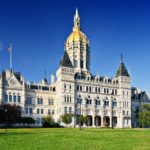 Connecticut: Senate Democrats called for emergency certification this week on several bills, including measures on election security. Republicans are pushing back, saying the process is being used to sidestep public hearings. The votes are taking place during a short legislative session, in which Democratic leaders say there may not be enough time to move all priority bills through the standard process. Senate Minority Leader Stephen Harding said the bills should go through normal channels. Among the bills up for a vote: one aimed at protecting voter data.
Connecticut: Senate Democrats called for emergency certification this week on several bills, including measures on election security. Republicans are pushing back, saying the process is being used to sidestep public hearings. The votes are taking place during a short legislative session, in which Democratic leaders say there may not be enough time to move all priority bills through the standard process. Senate Minority Leader Stephen Harding said the bills should go through normal channels. Among the bills up for a vote: one aimed at protecting voter data.
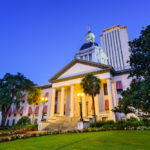 Florida: An election bill that would require proof of American citizenship to vote and limit the kinds of identification voters could show at the polls was approved in the Republican-controlled Florida House. The vote was 88-31, along party lines. The bill (HB 991) is similar to the citizenship requirement contained in the Safeguard American Voter Eligibility, or SAVE America, Act, the federal legislation advocated by President Trump that passed two weeks ago in the U.S House of Representatives. Advocates say it’s necessary to ensure that non-citizens aren’t eligible to vote in the Sunshine State, but voter rights groups and Democrats contend there has been little evidence of such fraud. The bill, they say, will disenfranchise an unknown number of registered voters in Florida. The bill also removes student IDs as an acceptable form of identification when voting at the polls — language not included in the companion bill moving through the Florida Senate. The proposal moving through both chambers of the Legislature says that the U.S. citizenship status of every Florida voter would need to be verified through Florida Department of Highway Safety and Motor Vehicles records before their voter registration is considered valid. Applicants would need to prove citizenship by providing a REAL ID-compliant driver’s license, birth certificate, valid passport, or other methods.
Florida: An election bill that would require proof of American citizenship to vote and limit the kinds of identification voters could show at the polls was approved in the Republican-controlled Florida House. The vote was 88-31, along party lines. The bill (HB 991) is similar to the citizenship requirement contained in the Safeguard American Voter Eligibility, or SAVE America, Act, the federal legislation advocated by President Trump that passed two weeks ago in the U.S House of Representatives. Advocates say it’s necessary to ensure that non-citizens aren’t eligible to vote in the Sunshine State, but voter rights groups and Democrats contend there has been little evidence of such fraud. The bill, they say, will disenfranchise an unknown number of registered voters in Florida. The bill also removes student IDs as an acceptable form of identification when voting at the polls — language not included in the companion bill moving through the Florida Senate. The proposal moving through both chambers of the Legislature says that the U.S. citizenship status of every Florida voter would need to be verified through Florida Department of Highway Safety and Motor Vehicles records before their voter registration is considered valid. Applicants would need to prove citizenship by providing a REAL ID-compliant driver’s license, birth certificate, valid passport, or other methods.
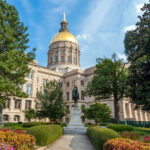 Georgia: Senate Democrats introduced Senate Bill 536, a state voting rights bill that would set up safeguards against voter suppression and create a voting rights commission — protections, they say, are needed after recent Supreme Court rulings that have eroded the federal Voting Rights Act of 1965. “This act creates statewide protections against voter suppression and vote dilution, key components of Section 2,” said Minority Leader Sen. Harold Jones III (D-Augusta). “It also creates a pre-clearance mechanism to ensure vote dilutions plans by local jurisdictions never move forward. Other specific aspects of the legislation ensures that public notice must be given for new or modified election changes on local or state levels, and it will make sure that voters do not face impediments to voting.” The bill is called the Henry McNeill-Turner Georgia Voting Rights Act, named after a Reconstruction-era Black Republican legislator and faith leader who was expelled from the Legislature with other African American representatives in 1868.
Georgia: Senate Democrats introduced Senate Bill 536, a state voting rights bill that would set up safeguards against voter suppression and create a voting rights commission — protections, they say, are needed after recent Supreme Court rulings that have eroded the federal Voting Rights Act of 1965. “This act creates statewide protections against voter suppression and vote dilution, key components of Section 2,” said Minority Leader Sen. Harold Jones III (D-Augusta). “It also creates a pre-clearance mechanism to ensure vote dilutions plans by local jurisdictions never move forward. Other specific aspects of the legislation ensures that public notice must be given for new or modified election changes on local or state levels, and it will make sure that voters do not face impediments to voting.” The bill is called the Henry McNeill-Turner Georgia Voting Rights Act, named after a Reconstruction-era Black Republican legislator and faith leader who was expelled from the Legislature with other African American representatives in 1868.
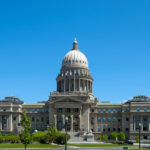 Idaho: A bill to require Idaho election poll workers to attempt to verify the identity of voters before giving them ballots is headed to the Senate. Senate Bill 1322 would change Idaho’s process for voter affidavits, which are sworn legal documents that registered Idaho voters can provide to cast ballots instead of showing photo identification. The bill would require affidavits to include the voter’s birth date, or the number for their driver’s license or ID card. The election judge would need to “verify the information against the voter registration records prior to issuing a ballot.” The Senate State Affairs Committee advanced the bill to the full Senate, where it could be considered in the coming days. Elections use secret ballots, meaning there’s no way to trace ballots placed in a ballot box back to an individual voter who signed an affidavit, Secretary of State Phil McGrane testified. He said Lenney’s bill would advance election integrity by shoring up safeguards before ballots are issued to voters.
Idaho: A bill to require Idaho election poll workers to attempt to verify the identity of voters before giving them ballots is headed to the Senate. Senate Bill 1322 would change Idaho’s process for voter affidavits, which are sworn legal documents that registered Idaho voters can provide to cast ballots instead of showing photo identification. The bill would require affidavits to include the voter’s birth date, or the number for their driver’s license or ID card. The election judge would need to “verify the information against the voter registration records prior to issuing a ballot.” The Senate State Affairs Committee advanced the bill to the full Senate, where it could be considered in the coming days. Elections use secret ballots, meaning there’s no way to trace ballots placed in a ballot box back to an individual voter who signed an affidavit, Secretary of State Phil McGrane testified. He said Lenney’s bill would advance election integrity by shoring up safeguards before ballots are issued to voters.
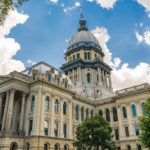 Illinois: Following a service for the late Rev. Jesse Jackson Saturday morning at the Rainbow PUSH Coalition, lawmakers gathered to advocate for a new bill they say continues Jackson’s legacy. “Your voice matters, your participation matters and democracy belongs to you,” said Rep. Kimberly Neely Du Buclet. “Reverend Jackson always spoke about a simple but powerful dream that every young person would graduate from high school with a diploma in one hand, and a voter registration card in another.” Du Buclet first introduced House Bill 4339 in January. It’s also known as the Rev. Jesse Jackson Sr. Young Voter Empowerment Act. If adopted it would amend the school code, and beginning the 2026-27 school year it will require school districts with grades 9 to 12 to provide all eligible students with an opportunity to register to vote. The bill is sponsored by 22 representatives, including Speaker of the House Emanuel “Chris” Welch. “I can’t tell you how many times I’ve heard young folks tell me they don’t think their vote matters. We’ve got work to do. We got a lot of work to do because their vote does matter,” Welch said. “We know there is no greater tribute we can pay to Rev Jackson than to continue the work he dedicated his life to.”
Illinois: Following a service for the late Rev. Jesse Jackson Saturday morning at the Rainbow PUSH Coalition, lawmakers gathered to advocate for a new bill they say continues Jackson’s legacy. “Your voice matters, your participation matters and democracy belongs to you,” said Rep. Kimberly Neely Du Buclet. “Reverend Jackson always spoke about a simple but powerful dream that every young person would graduate from high school with a diploma in one hand, and a voter registration card in another.” Du Buclet first introduced House Bill 4339 in January. It’s also known as the Rev. Jesse Jackson Sr. Young Voter Empowerment Act. If adopted it would amend the school code, and beginning the 2026-27 school year it will require school districts with grades 9 to 12 to provide all eligible students with an opportunity to register to vote. The bill is sponsored by 22 representatives, including Speaker of the House Emanuel “Chris” Welch. “I can’t tell you how many times I’ve heard young folks tell me they don’t think their vote matters. We’ve got work to do. We got a lot of work to do because their vote does matter,” Welch said. “We know there is no greater tribute we can pay to Rev Jackson than to continue the work he dedicated his life to.”
Lawmakers could pass a bill this spring to allow local election authorities to opt into a voter center model rather than the traditional precinct model of voting. State lawmakers passed a proposal in 2020 requiring each county to have at least one vote center where all voters could vote on Election Day. House Bill 2770 would allow election authorities to have multiple voting centers open throughout early voting and election day.
 Indiana: The Senate did not take up House Bill 1359, which was amended last week by a Senate committee to include the voting period change without any testimony coming from the public or local election officials. Sen. Mike Gaskill, R-Pendleton, added the provision to cutting the time period for early in-person voting from 28 days to 16 days ahead of Election Day. He argued last week that the shorter time would cut election administration expenses while still allowing plenty of time for early voting. A similar proposal also cleared the Senate Elections Committee last year but was not called for a full Senate vote because it did not have enough support to pass. Even if the Senate had endorsed the change, Republican House Speaker Todd Huston had stated his opposition by saying last week he was “very comfortable with our election laws as they are.”
Indiana: The Senate did not take up House Bill 1359, which was amended last week by a Senate committee to include the voting period change without any testimony coming from the public or local election officials. Sen. Mike Gaskill, R-Pendleton, added the provision to cutting the time period for early in-person voting from 28 days to 16 days ahead of Election Day. He argued last week that the shorter time would cut election administration expenses while still allowing plenty of time for early voting. A similar proposal also cleared the Senate Elections Committee last year but was not called for a full Senate vote because it did not have enough support to pass. Even if the Senate had endorsed the change, Republican House Speaker Todd Huston had stated his opposition by saying last week he was “very comfortable with our election laws as they are.”
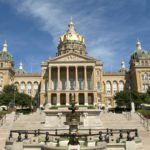 Iowa: Senators approved a number of bills this week related to citizenship verification using federal information. The Senate approved Senate File 2203 in a 34-13 vote, requiring the secretary of state to verify the citizenship status of each registered voter using the federal Systematic Alien Verification for Entitlements (SAVE) database. If a person is not verified as a U.S. citizen through the SAVE database check, the Secretary of State’s office would provide notice to the county auditor, who would then designate this individual as having “unconfirmed” citizenship status. The county auditor would be required to send notice to an individual about their status, providing information about how they can provide proof of citizenship, contact the U.S. Citizenship and Immigration Services to correct information in the SAVE database, or to allow them to cancel their voter registration request. If a person does not provide proof of citizenship within 90 days of being designated as “unconfirmed,” their voter registration would be canceled.
Iowa: Senators approved a number of bills this week related to citizenship verification using federal information. The Senate approved Senate File 2203 in a 34-13 vote, requiring the secretary of state to verify the citizenship status of each registered voter using the federal Systematic Alien Verification for Entitlements (SAVE) database. If a person is not verified as a U.S. citizen through the SAVE database check, the Secretary of State’s office would provide notice to the county auditor, who would then designate this individual as having “unconfirmed” citizenship status. The county auditor would be required to send notice to an individual about their status, providing information about how they can provide proof of citizenship, contact the U.S. Citizenship and Immigration Services to correct information in the SAVE database, or to allow them to cancel their voter registration request. If a person does not provide proof of citizenship within 90 days of being designated as “unconfirmed,” their voter registration would be canceled.
 Kansas: Twenty Republicans sponsored House Bill 2503, which would repeal the state’s Mail Ballot Election Act, removing the possibility for local entities to carry out elections solely with mail-in ballots. It passed the House by a 72-50 vote.
Kansas: Twenty Republicans sponsored House Bill 2503, which would repeal the state’s Mail Ballot Election Act, removing the possibility for local entities to carry out elections solely with mail-in ballots. It passed the House by a 72-50 vote.
Another bill would require the names, addresses and other personal identification information of people without U.S. citizenship who receive public benefits to be regularly shared with the Kansas Secretary of State’s Office under Proctor’s House Bill 2491. The bill mirrors one passed last year that now requires the Kansas Department of Revenue, which oversees driver’s license administration, to send personal data to the Secretary of State’s Office, where it is compared side-by-side with statewide voter rolls. HB 2491 passed the House in an 87-37 vote.
House Bill 2453 would modify three components of advanced voting. It would shift the mail-in ballot deadline by a week, moving it from the Tuesday preceding Election Day to two weeks before Election Day, and clerks would have to send ballots 22 days before an election. It also would shrink the deadline for in-person advance voting, requiring ballots be submitted by the Friday before Election Day instead of noon the day before, as is the current practice. The bill gives county clerks the option to extend the deadline to noon on the Sunday preceding election day, but it could be costly to staff election offices on the weekend, when government buildings are typically closed. The bill also would forbid county election officers from accepting voter registrations after the 25th day before an election, and it would eliminate the procedures for canvassing and challenging advance mail-in ballots after polls close on Election Day. The House passed the bill in a 86-38 vote.
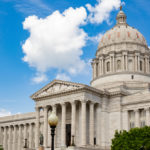 Missouri: Missouri Senators raised privacy concerns during a hearing on a bill that would put personal information about every registered voter on a state website. Under the legislation proposed by state Sen. Jill Carter, a Republican from Granby, the secretary of state’s office would be required to publish the full list of approximately 4.5 million registered voters on the office website. The list would have to include the voter’s name, address and date of birth along with a voter identification number, the township or ward where they reside and the precinct where they are assigned to vote. “This seems like a lot of personal information that is going out there,” state Sen. Maggie Nurrenbern, a Democrat from Kansas City, said during a hearing of the Senate Local Government, Elections and Pensions Committee. “I have very serious privacy concerns about that being on a website.” Carter’s office clarified that the intent of the bill was to ensure the most up-to-date information was provided to election judges and poll watchers on Election Day. Posting the material online was the result of a drafting error, and Carter said she would revamp the language of the bill before the committee takes a vote. Along with the provision to put voter lists online, the bill would extend a fee collected by the secretary of state’s office, require election tallies to be reported with separate totals for Election Day voting and absentee ballots and direct the office to assign a unique identifier for every voting district in the state.
Missouri: Missouri Senators raised privacy concerns during a hearing on a bill that would put personal information about every registered voter on a state website. Under the legislation proposed by state Sen. Jill Carter, a Republican from Granby, the secretary of state’s office would be required to publish the full list of approximately 4.5 million registered voters on the office website. The list would have to include the voter’s name, address and date of birth along with a voter identification number, the township or ward where they reside and the precinct where they are assigned to vote. “This seems like a lot of personal information that is going out there,” state Sen. Maggie Nurrenbern, a Democrat from Kansas City, said during a hearing of the Senate Local Government, Elections and Pensions Committee. “I have very serious privacy concerns about that being on a website.” Carter’s office clarified that the intent of the bill was to ensure the most up-to-date information was provided to election judges and poll watchers on Election Day. Posting the material online was the result of a drafting error, and Carter said she would revamp the language of the bill before the committee takes a vote. Along with the provision to put voter lists online, the bill would extend a fee collected by the secretary of state’s office, require election tallies to be reported with separate totals for Election Day voting and absentee ballots and direct the office to assign a unique identifier for every voting district in the state.
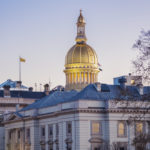 New Jersey: An Assembly panel approved a state-level voting rights act that would reinstate some provisions courts have stripped from the federal law in a party-line vote February 20. The bill, called the John R. Lewis Voter Empowerment Act of New Jersey after the late congressman and civil rights figure, would give state courts broad powers to rewrite discriminatory election rules, redraw voting districts, expand governing bodies, and reschedule elections if the original date would have disproportionately prevented members of a protected class from voting. The measure, which failed to get a full vote by the Legislature in the previous legislative session, would require New Jersey localities with a history of voter suppression or intimidation to seek approval from state election officials before changing election rules, mirroring provisions in the federal Voting Rights Act that have been inoperative since the U.S. Supreme Court struck them down in 2013. And it would expand language access provisions to require election materials and assistance be offered in other languages in municipalities where at least 2% of residents or 4,000 people speak a language other than English and have limited English proficiency. The federal Voting Rights Act sets those bars at 10% or 10,000 residents. The bill would create a new division within the state Treasury to oversee voting matters. The state’s voting rights division would be endowed with subpoena and investigative powers as well as rulemaking authority over voting and the ability to join or launch lawsuits on behalf of the public. The bill has yet to advance in the state Senate. The prior version of the bill did not get a committee hearing in the upper chamber.
New Jersey: An Assembly panel approved a state-level voting rights act that would reinstate some provisions courts have stripped from the federal law in a party-line vote February 20. The bill, called the John R. Lewis Voter Empowerment Act of New Jersey after the late congressman and civil rights figure, would give state courts broad powers to rewrite discriminatory election rules, redraw voting districts, expand governing bodies, and reschedule elections if the original date would have disproportionately prevented members of a protected class from voting. The measure, which failed to get a full vote by the Legislature in the previous legislative session, would require New Jersey localities with a history of voter suppression or intimidation to seek approval from state election officials before changing election rules, mirroring provisions in the federal Voting Rights Act that have been inoperative since the U.S. Supreme Court struck them down in 2013. And it would expand language access provisions to require election materials and assistance be offered in other languages in municipalities where at least 2% of residents or 4,000 people speak a language other than English and have limited English proficiency. The federal Voting Rights Act sets those bars at 10% or 10,000 residents. The bill would create a new division within the state Treasury to oversee voting matters. The state’s voting rights division would be endowed with subpoena and investigative powers as well as rulemaking authority over voting and the ability to join or launch lawsuits on behalf of the public. The bill has yet to advance in the state Senate. The prior version of the bill did not get a committee hearing in the upper chamber.
 Ohio: The House voted overwhelmingly to ban local governments from using ranked choice voting, sending the bill back to the Senate for a change before it goes to Gov. Mike DeWine. The ranked choice voting ban has both a Republican and Democratic sponsor, but the vote in both chambers has split largely along party lines. Senate Bill 63, sponsored by Sens. Theresa Gavarone (R-Bowling Green) and Bill DeMora (D-Columbus), passed the Senate 27-5 in May. On the House floor, Rep. Sharon Ray (R-Medina) said the director of the Cuyahoga County Board of Elections testified he had serious concerns about ranked choice voting, specifically in terms of certifying when candidates are eliminated before proceeding to the next tabulated round. SB 63 passed the House 65-27. Only two House Democrats joined all Republicans in voting for the ban, along with three of the Senate’s seven Democrats. A handful of Ohio communities have been considering ranked choice voting, including Cincinnati and Lakewood. The pro-ranked choice group FairVote reports two states and 48 local jurisdictions use ranked choice voting.
Ohio: The House voted overwhelmingly to ban local governments from using ranked choice voting, sending the bill back to the Senate for a change before it goes to Gov. Mike DeWine. The ranked choice voting ban has both a Republican and Democratic sponsor, but the vote in both chambers has split largely along party lines. Senate Bill 63, sponsored by Sens. Theresa Gavarone (R-Bowling Green) and Bill DeMora (D-Columbus), passed the Senate 27-5 in May. On the House floor, Rep. Sharon Ray (R-Medina) said the director of the Cuyahoga County Board of Elections testified he had serious concerns about ranked choice voting, specifically in terms of certifying when candidates are eliminated before proceeding to the next tabulated round. SB 63 passed the House 65-27. Only two House Democrats joined all Republicans in voting for the ban, along with three of the Senate’s seven Democrats. A handful of Ohio communities have been considering ranked choice voting, including Cincinnati and Lakewood. The pro-ranked choice group FairVote reports two states and 48 local jurisdictions use ranked choice voting.
 South Dakota: Voters would need to provide documentation proving U.S. citizenship when registering to vote under a bill approved by the state Senate in Pierre. Senators passed Senate Bill 175 on Thursday by a 28-6 vote. Because the measure includes an emergency clause, it required a two-thirds majority and received the needed support, according to the Legislature’s bill listing and floor action reports. The bill would require anyone registering to vote to submit documents that prove U.S. citizenship, supporters said during debate. Sen. John Carley, R-Piedmont, argued the proposal would formalize checks the state already performs and help prevent noncitizens from registering. SB 175 now moves to the South Dakota House for consideration.
South Dakota: Voters would need to provide documentation proving U.S. citizenship when registering to vote under a bill approved by the state Senate in Pierre. Senators passed Senate Bill 175 on Thursday by a 28-6 vote. Because the measure includes an emergency clause, it required a two-thirds majority and received the needed support, according to the Legislature’s bill listing and floor action reports. The bill would require anyone registering to vote to submit documents that prove U.S. citizenship, supporters said during debate. Sen. John Carley, R-Piedmont, argued the proposal would formalize checks the state already performs and help prevent noncitizens from registering. SB 175 now moves to the South Dakota House for consideration.
 Utah: The House Government Operations Committee has endorsed a plan to create a secretary of state and give election duties to that office, stripping them from the lieutenant governor. The committee approved both HB529, which would establish the position of the secretary of state, and HJR25, a constitutional amendment that would give voters the final say on the matter later this year. Both measures, sponsored by Rep. Lisa Shepherd, R-Provo, will advance to the House of Representatives for consideration with just over a week and a half left in the legislative session. “I believe there is a structural problem and inherent conflict of interest when we have elections and those duties underneath the top executive,” Shepherd told the committee.
Utah: The House Government Operations Committee has endorsed a plan to create a secretary of state and give election duties to that office, stripping them from the lieutenant governor. The committee approved both HB529, which would establish the position of the secretary of state, and HJR25, a constitutional amendment that would give voters the final say on the matter later this year. Both measures, sponsored by Rep. Lisa Shepherd, R-Provo, will advance to the House of Representatives for consideration with just over a week and a half left in the legislative session. “I believe there is a structural problem and inherent conflict of interest when we have elections and those duties underneath the top executive,” Shepherd told the committee.
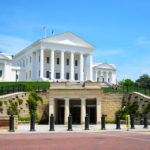 Virginia: HB 82 and SB 58, introduced by Del. Adele McClure (D-Arlington) and State Sen. Barbara Favola (D-Arlington), respectively, call for moving the deadline for receiving and counting absentee ballots from noon to 5 p.m. on the third day after an election. The bills also propose a 5 p.m. deadline for voters casting a provisional ballot to provide their proof of identification for their ballot to be counted. However, the bills would not change the deadline for voters to turn in absentee ballots or have them postmarked by Election Day. Favola noted that the new 5 p.m. deadline wouldn’t impose any additional burdens on election officers or delay the counting of ballots. She told ARLnow that the bills respond to delays in the U.S. Postal Service’s mail delivery. “According to USPS, the average piece of mail is delivered in 2.8 days. Given this timeframe, if absentee ballots are postmarked on election day (as is current law), they may not be delivered until after the 12:00 pm deadline,” Favola said. In the recent special election to replace State Sen. Adam Ebbin, for instance, postal carriers delivered 30 mail-in ballots after the noon deadline. The companion bills passed their respective chambers and advanced to the opposite chamber before the crossover deadline. If bills pass both chambers, a final version of the legislation would go to Gov. Abigail Spanberger (D).
Virginia: HB 82 and SB 58, introduced by Del. Adele McClure (D-Arlington) and State Sen. Barbara Favola (D-Arlington), respectively, call for moving the deadline for receiving and counting absentee ballots from noon to 5 p.m. on the third day after an election. The bills also propose a 5 p.m. deadline for voters casting a provisional ballot to provide their proof of identification for their ballot to be counted. However, the bills would not change the deadline for voters to turn in absentee ballots or have them postmarked by Election Day. Favola noted that the new 5 p.m. deadline wouldn’t impose any additional burdens on election officers or delay the counting of ballots. She told ARLnow that the bills respond to delays in the U.S. Postal Service’s mail delivery. “According to USPS, the average piece of mail is delivered in 2.8 days. Given this timeframe, if absentee ballots are postmarked on election day (as is current law), they may not be delivered until after the 12:00 pm deadline,” Favola said. In the recent special election to replace State Sen. Adam Ebbin, for instance, postal carriers delivered 30 mail-in ballots after the noon deadline. The companion bills passed their respective chambers and advanced to the opposite chamber before the crossover deadline. If bills pass both chambers, a final version of the legislation would go to Gov. Abigail Spanberger (D).
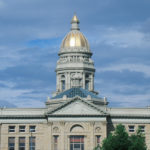 Wyoming: A Senate committee rejected a measure that would have allowed the secretary of state to directly initiate removal proceedings for election code violations. The defeat of House Bill 0086 preserves a long-standing statutory wall that keeps the power to challenge locally elected officials strictly in the hands of the voters and county commissioners they serve, despite a year of escalating tension between top state executives and rural clerks. The legislation was a direct response to the ongoing controversy in Weston County. Secretary of State Chuck Gray testified that a lack of accountability in current law led to a 15-month delay in addressing what he described as a false post-election audit. Under current statute, only a county’s own electors or commissioners can trigger the removal process through the governor. Gray argued that as the state’s chief election officer, his office is uniquely positioned to spot malfeasance that local voters might miss. Opponents, including the League of Women Voters and local civics groups, argued that the bill was less about integrity and more about political leverage. They warned that allowing a statewide official to target a local clerk could weaponize the election code against political rivals.
Wyoming: A Senate committee rejected a measure that would have allowed the secretary of state to directly initiate removal proceedings for election code violations. The defeat of House Bill 0086 preserves a long-standing statutory wall that keeps the power to challenge locally elected officials strictly in the hands of the voters and county commissioners they serve, despite a year of escalating tension between top state executives and rural clerks. The legislation was a direct response to the ongoing controversy in Weston County. Secretary of State Chuck Gray testified that a lack of accountability in current law led to a 15-month delay in addressing what he described as a false post-election audit. Under current statute, only a county’s own electors or commissioners can trigger the removal process through the governor. Gray argued that as the state’s chief election officer, his office is uniquely positioned to spot malfeasance that local voters might miss. Opponents, including the League of Women Voters and local civics groups, argued that the bill was less about integrity and more about political leverage. They warned that allowing a statewide official to target a local clerk could weaponize the election code against political rivals.
The Senate Corporations, Elections and Political Subdivisions Committee voted 4–1 to advance a bill aimed at increasing transparency during Wyoming’s post-election audit process. House Bill 0085, “Post-election audit procedures,” now moves to the Senate floor. HB0085, sponsored by the Management Audit Committee, adds documentation and observer requirements to Wyoming’s existing post-election audit statute. Under current law, county clerks must conduct statistically significant audits following elections. If enacted, the bill would require: Official minutes be taken during audits; Audit results and minutes be submitted to the Secretary of State at least one day before the state canvassing board meeting; Political party chairs and independent candidates be notified of audit times and locations; At least two electors representing different political parties be present; and Observers be allowed to submit documented objections, which must accompany the final audit report. The bill previously passed the House on a 60–1 vote, with one member excused.
Legal Updates
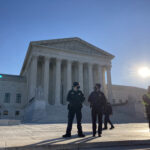 U.S. Supreme Court: While not a direct elections-related case, this week the Supreme Court ruled on a case that could have implications for vote-by-mail. A divided Court ruled that Americans can’t sue the U.S. Postal Service, even when employees deliberately refuse to deliver mail. By a 5-4 vote, the justices ruled against a Texas landlord, Lebene Konan, who alleges her mail was intentionally withheld for two years. Konan, who is Black, claims racial prejudice played a role in postal employees’ actions. Justice Clarence Thomas, writing for a majority of five conservative justices, said the federal law that generally shields the Postal Service from lawsuits over missing, lost and undelivered mail includes “the intentional nondelivery of mail.” In dissent, Justice Sonia Sotomayor wrote that while the protection against lawsuits is broad, it does not extend to situations when the decision not to deliver mail “was driven by malicious reasons.” Justice Neil Gorsuch joined his three liberal colleagues in dissent.
U.S. Supreme Court: While not a direct elections-related case, this week the Supreme Court ruled on a case that could have implications for vote-by-mail. A divided Court ruled that Americans can’t sue the U.S. Postal Service, even when employees deliberately refuse to deliver mail. By a 5-4 vote, the justices ruled against a Texas landlord, Lebene Konan, who alleges her mail was intentionally withheld for two years. Konan, who is Black, claims racial prejudice played a role in postal employees’ actions. Justice Clarence Thomas, writing for a majority of five conservative justices, said the federal law that generally shields the Postal Service from lawsuits over missing, lost and undelivered mail includes “the intentional nondelivery of mail.” In dissent, Justice Sonia Sotomayor wrote that while the protection against lawsuits is broad, it does not extend to situations when the decision not to deliver mail “was driven by malicious reasons.” Justice Neil Gorsuch joined his three liberal colleagues in dissent.
 Alaska: A measure to repeal Alaska’s nonpartisan primaries and ranked choice general elections will be on the ballot this year, but exactly how it’s worded remains a hot dispute. Both sides of the repeal — pro- and anti — have now sued the Division of Elections to try to change the language, because how voters interpret what they see on the ballot can affect the outcome. Repeal Now filed its lawsuit last week. Consultant Greg Powers said the wording the state proposes is more complicated than it should be. “It makes it sound like we’re doing other things in this ballot measure,” Powers said. “But really, all the ballot measure does is return Alaska elections to how they were before ranked choice voting, before that ranked choice voting proposition passed. So we would like the ballot language to reflect that.” Attorney Scott Kendall is the architect of Alaska’s current voting method, Kendall filed a lawsuit last month, on behalf of state Senate Majority Leader Cathy Giessel and other supporters of the 2020 election reforms. He dropped the suit weeks later because, he said, the Division of Elections considered his detailed complaint and revised the proposed language. “It’s not exactly the way I’d write it, but it was very much more accurate language about what the ballot measure will do,” he said. The new wording, though, prompted the sponsors of the repeal to sue. They contend the ballot language risks confusing voters. Among other changes, Repeal Now wants the state to put the term “ranked choice voting” in the ballot title.
Alaska: A measure to repeal Alaska’s nonpartisan primaries and ranked choice general elections will be on the ballot this year, but exactly how it’s worded remains a hot dispute. Both sides of the repeal — pro- and anti — have now sued the Division of Elections to try to change the language, because how voters interpret what they see on the ballot can affect the outcome. Repeal Now filed its lawsuit last week. Consultant Greg Powers said the wording the state proposes is more complicated than it should be. “It makes it sound like we’re doing other things in this ballot measure,” Powers said. “But really, all the ballot measure does is return Alaska elections to how they were before ranked choice voting, before that ranked choice voting proposition passed. So we would like the ballot language to reflect that.” Attorney Scott Kendall is the architect of Alaska’s current voting method, Kendall filed a lawsuit last month, on behalf of state Senate Majority Leader Cathy Giessel and other supporters of the 2020 election reforms. He dropped the suit weeks later because, he said, the Division of Elections considered his detailed complaint and revised the proposed language. “It’s not exactly the way I’d write it, but it was very much more accurate language about what the ballot measure will do,” he said. The new wording, though, prompted the sponsors of the repeal to sue. They contend the ballot language risks confusing voters. Among other changes, Repeal Now wants the state to put the term “ranked choice voting” in the ballot title.
 Colorado: The Colorado Court of Appeals denied Tina Peters’ request to release her on bond because her plea was filed more than a year too late. Peters is Mesa County’s former elections clerk, who is serving a nine-year prison sentence after she turned off surveillance cameras monitoring voting machines, allowed a QAnon conspiracy proponent to access the room where the voting machines were stored and allowed him to make copies of the machine’s hard drive before and after an update.
Colorado: The Colorado Court of Appeals denied Tina Peters’ request to release her on bond because her plea was filed more than a year too late. Peters is Mesa County’s former elections clerk, who is serving a nine-year prison sentence after she turned off surveillance cameras monitoring voting machines, allowed a QAnon conspiracy proponent to access the room where the voting machines were stored and allowed him to make copies of the machine’s hard drive before and after an update.
 New Jersey: Superior Court Judge Robert Lougy dismissed the Republican National Committee’s lawsuit over the state’s handling of voting records late last week, and state officials are now asking a federal judge to do the same with a similar suit. The RNC sued the Division of Elections last year, accusing the state of “slow walking” access to records regarding voter machines and voter roll maintenance. The party had specifically requested information about the state’s voter rolls and data from vote-counting during the June primary elections, including some records that the state said simply do not exist. New Jersey’s officials say they have given the RNC a number of substantial voter roll documents, but that OPRA does not require states to create new records for the sake of public requests, like the seal audit logs that track which state workers open a voting machine after an election. State officials said counties maintain the seal audit logs, and the state is unable to produce those records. Lougy agreed. “An agency has no obligation under OPRA to provide a requester with a copy of a record that does not exist, or an obligation to create such a new record from information in its possession,” Lougy wrote in his order dismissing the case with prejudice.
New Jersey: Superior Court Judge Robert Lougy dismissed the Republican National Committee’s lawsuit over the state’s handling of voting records late last week, and state officials are now asking a federal judge to do the same with a similar suit. The RNC sued the Division of Elections last year, accusing the state of “slow walking” access to records regarding voter machines and voter roll maintenance. The party had specifically requested information about the state’s voter rolls and data from vote-counting during the June primary elections, including some records that the state said simply do not exist. New Jersey’s officials say they have given the RNC a number of substantial voter roll documents, but that OPRA does not require states to create new records for the sake of public requests, like the seal audit logs that track which state workers open a voting machine after an election. State officials said counties maintain the seal audit logs, and the state is unable to produce those records. Lougy agreed. “An agency has no obligation under OPRA to provide a requester with a copy of a record that does not exist, or an obligation to create such a new record from information in its possession,” Lougy wrote in his order dismissing the case with prejudice.
 Utah: The Utah Supreme Court has ruled against the Utah Legislature in the state’s ongoing redistricting legal battle. The state’s highest court issued a ruling February 20 rejecting lawmakers’ attempt to overturn a district court judge’s earlier decision in an anti-gerrymandering lawsuit that led to a court-ordered congressional map creating one Democratic district and three Republican districts. The plaintiffs in that district court case — the League of Women Voters of Utah, Mormon Women for Ethical Government, and a handful of Salt Lake County voters — had argued that the Utah Supreme Court should dismiss the appeal because it lacked jurisdiction since the case hasn’t been finalized in district court. The Utah Supreme Court agreed, according to an opinion issued by the court’s law and motion panel, which is composed of Chief Justice Matthew Durrant, Associate Chief Justice Jill Pohlman, and Justice Paige Petersen. The ruling rejected the Legislature’s appeal while also dismissing a request to block 3rd District Court Judge Dianna Gibson’s earlier ruling that voided the Legislature’s 2021 congressional map. The court also denied another motion from Utah County Clerk Aaron Davidson to intervene in the appeal.
Utah: The Utah Supreme Court has ruled against the Utah Legislature in the state’s ongoing redistricting legal battle. The state’s highest court issued a ruling February 20 rejecting lawmakers’ attempt to overturn a district court judge’s earlier decision in an anti-gerrymandering lawsuit that led to a court-ordered congressional map creating one Democratic district and three Republican districts. The plaintiffs in that district court case — the League of Women Voters of Utah, Mormon Women for Ethical Government, and a handful of Salt Lake County voters — had argued that the Utah Supreme Court should dismiss the appeal because it lacked jurisdiction since the case hasn’t been finalized in district court. The Utah Supreme Court agreed, according to an opinion issued by the court’s law and motion panel, which is composed of Chief Justice Matthew Durrant, Associate Chief Justice Jill Pohlman, and Justice Paige Petersen. The ruling rejected the Legislature’s appeal while also dismissing a request to block 3rd District Court Judge Dianna Gibson’s earlier ruling that voided the Legislature’s 2021 congressional map. The court also denied another motion from Utah County Clerk Aaron Davidson to intervene in the appeal.
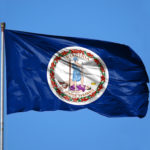 Virginia: Tazewell County Circuit Court Chief Judge Jack Hurley granted an emergency injunction blocking what Republicans call an unlawful April 21 redistricting referendum while the case is heard in court. Hurley issued a temporary restraining order barring state and local election officials from moving forward with the planned vote. The move handed the plaintiffs in the case — the Republican National Committee, the National Republican Congressional Committee and U.S. Reps. Ben Cline, R-Botetourt County, and Morgan Griffith, R-Salem, — a brief reprieve in a high-stakes fight that could reshape Virginia’s congressional map ahead of the midterms. In his written ruling, Hurley found the plaintiffs have an “extraordinarily high likelihood of success on the merits,” including their claim that the referendum violates the timing requirement of Article XII, Section 1 of the Virginia Constitution because early voting is set for “sooner than 90 days after” the January passage of House Joint Resolution 4. Hurley also found the ballot language — particularly the phrase “restore fairness” — is likely misleading and violates the Constitution because it “would lead a voter to believe he or she were doing something unfair by voting against the proposed amendment.” The order states that “the equities of this case warrant temporary relief ‘for the limited purpose of preserving the status quo between the parties pending a hearing on a motion for a preliminary injunction.’” The court denied the commonwealth’s motions to transfer venue and to stay the case, and ordered that defendants are “temporarily restrained” from administering or taking action to advance the referendum. The order remains in effect until March 18, unless modified or extended.
Virginia: Tazewell County Circuit Court Chief Judge Jack Hurley granted an emergency injunction blocking what Republicans call an unlawful April 21 redistricting referendum while the case is heard in court. Hurley issued a temporary restraining order barring state and local election officials from moving forward with the planned vote. The move handed the plaintiffs in the case — the Republican National Committee, the National Republican Congressional Committee and U.S. Reps. Ben Cline, R-Botetourt County, and Morgan Griffith, R-Salem, — a brief reprieve in a high-stakes fight that could reshape Virginia’s congressional map ahead of the midterms. In his written ruling, Hurley found the plaintiffs have an “extraordinarily high likelihood of success on the merits,” including their claim that the referendum violates the timing requirement of Article XII, Section 1 of the Virginia Constitution because early voting is set for “sooner than 90 days after” the January passage of House Joint Resolution 4. Hurley also found the ballot language — particularly the phrase “restore fairness” — is likely misleading and violates the Constitution because it “would lead a voter to believe he or she were doing something unfair by voting against the proposed amendment.” The order states that “the equities of this case warrant temporary relief ‘for the limited purpose of preserving the status quo between the parties pending a hearing on a motion for a preliminary injunction.’” The court denied the commonwealth’s motions to transfer venue and to stay the case, and ordered that defendants are “temporarily restrained” from administering or taking action to advance the referendum. The order remains in effect until March 18, unless modified or extended.
Opinions This Week
National Opinions: SAVE Act, II, III, IV, V | Voter fraud | Election threats | Nationalized elections | Voter ID | The Big Lie | Voting rights
Alaska: Voter data | SAVE Act
California: Election interference
Hawai’i: Election changes
Idaho: SAVE Act
Illinois: U.S. Supreme Court ruling
Indiana: Early voting, II, III | Ranked choice voting, II
Kansas: Election legislation
Maryland: Student poll workers
Michigan: Honest elections
Minnesota: Election integrity
North Carolina: Boards of elections
North Dakota: SAVE Act
Pennsylvania: Voter ID
Utah: SB 194
Virginia: Ranked choice voting, II
Washington: SAVE Act | Voting rights
Wisconsin: Federal interference
Upcoming Events
Alabama Association Board of Registrars: The Alabama Association Board of Registrars (AABOR) will host its spring 2026 meeting in Orange Beach. When: February 27. Where: Orange Beach.
New Jersey Association of Election Officials: The 89th Annual NJAEO Conference will be held March 2-4.
Elections à la Carte: An Online Conversation on Elections over Lunch: The Journal of Election Administration Research & Practice invites you to join us over Zoom for a lunchtime conversation on innovative funding solutions for election administration. Our first solution presentation comes from Derek Clinger, of the State Democracy Research Initiative, who will discuss how states could use unclaimed funds for supporting elections. Derek will present his solution and take questions from the online audience. When: March 4, 12pm Eastern. Where: Online.
Michigan Association of Municipal Clerks: The Michigan Association of Municipal Clerks will hold its 2026 Clerks’ Institute in Mt. Pleasant. When: March 8-13 & March 15-20. Where: Mt. Pleasant.
Rhode Island Town and City Clerks Association (RITCCA): RITCCA’s Annual Conference will be held March 19 in Warwick. When: March 19. Where: Warwick.
Georgia Association of Voter Registrars and Election Officials (GAVREO): The Georgia Association of Voter Registrars and Election Officials will hold its 2026 conference at the Classics Center in Athens. When: March 22-25. Where: Athens.
Virginia Electoral Board Association (VEBA): The VEBA Annual Conference will be held March 23-25 at the Omni Homestead Resort in Hot Springs. When: March 23-25. Where: The Homestead.
Municipal Clerks and Finance Officers Association of Minnesota (MCFOA): MCFOA will hold its 2026 Annual Conference at the Heritage Center in Brooklyn Center. This year’s theme, Adventures in Clerking, honors the dedication and professionalism you bring to your communities each day. Our hope is that this conference sparks inspiration, provides practical tools, and creates meaningful opportunities to connect with colleagues from across Minnesota. When: March 24-27. Where: Brooklyn Center.
Connecticut Town Clerks Association (CTCA): The 2026 Spring CTCA conference will be held April 15-17 at Mystic Marriott in Mystic – hosted by New London County. When: April 15-17. Where: Mystic.
Election Center April Workshop: In April, the focus is on state associations and state trainings both by modeling conference formats, facilitation techniques, and potential content resources. The Coalition of Election Association Leaders (CEAL) guides state groups in their maturation process with mentorship and networking opportunities. When: April 22-24. Where: Chicago.
Kansas County Clerks and Election Officials Association: The 2026 Annual KCCEOA Conference will be April 28-May 1 at the Refinery in Garden City. When: April 28-May 1. Where: Garden City.
2026 IIMC Annual Conference: The International Institute of Municipal Clerks will be holding its Annual Conference from May 17-21 in Reno, Nevada. When: May 17-21. Where: Reno.
2026 NACo Annual Conference & Exposition: The National Association of Counties will hold its 2026 Annual Conference & Exposition on Orleans Parish, Louisiana from July 17-20. When: July 17-20. Where: New Orleans.
NASED 2026 Summer Conference: The National Association of Directors of Elections will hold its summer conference from July 20-22 in Boston. When: July 20-22. Where: Boston.
iGO 9th Annual Conference: The International Association of Government Officials will hold its 9th Annual Conference from July 25-28 in Reston, Virginia. When: July 25-28. Where: Reston, Virginia.
2026 NCSL Legislative Summit: The 2026 NCSL Legislative Summit takes place in Chicago July 27-29, bringing together state legislators and legislative staff from all 50 states and U.S. territories for three days of collaboration, innovation and bipartisan dialogue. When: July 27-29. Where: Chicago.
Election Center 41st Annual Conference: The National Association of Election Officials (Election Center) will hold its 41st Annual Conference in Kansas City, Missouri from August 19 to 21. CERA classes will be offered August 22 and 23. When: August 19 to 21. Where: Kansas City, Missouri.
Job Postings This Week
electionlineWeekly publishes election administration job postings each week as a free service to our readers. To have your job listed in the newsletter, please send a copy of the job description, including a web link to mmoretti@electionline.org. Job postings must be received by 5pm on Wednesday in order to appear in the Thursday newsletter. Listings will run for three weeks or till the deadline listed in the posting.
Assistant Registrar of Voters, San Diego County, California– The Assistant Registrar of Voters is an executive management position reporting to the Registrar of Voters (Director). The Assistant Registrar assists the Director in managing the overall responsibilities and activities of the Department to include providing eligible citizens of San Diego County with widespread and ongoing opportunities to register and vote in fair and accurate elections for all federal, state and local offices and measures; and providing access to the information needed to utilize the initiative, referendum, and recall petition processes. Duties include the following: Assists in planning, implementing, and evaluating policies and programs as well as advises the Director on policy and program development; Identifies problems to formulate effective solutions, including implementing innovative efficiencies and process improvements to streamline election operations; Leads the procurement and implementation of new IT systems designed to enhance voting systems and election management; Collaborates with the region’s political jurisdictions, elected officials, County departments, community-based organizations, business, and/or election advocacy groups, as well as a myriad of stakeholders regarding the administration of elections; Provides leadership and works with supervisors to develop and retain highly competent, service-oriented staff through selection, training and day-to-day management practices that support the department’s mission, objectives, and service expectations; participates in programs and activities that promote workplace diversity and a positive employee relations environment; Presents reports, recommendations, and information to the Board of Supervisors and other citizen/community groups; Assists in developing the department’s annual budget, and monitors revenue and expenditure transactions; and Serves as the liaison with public and private agencies, and provides information to County departments, the public, and agency representatives on departmental initiative activities. Salary: $190,000 to $210,000. Deadline: March 21. Application: For the complete job listing and to apply, click here.
Assistant Secretary of State, Mississippi–The Elections Division has many roles in assuring that Mississippians’ voices are heard clearly through the election process. These roles include training election officials, collecting campaign finance and lobbying reports, managing the statewide voter registry, collecting election returns, and assisting local election officials in carrying out their election-related responsibilities. Application: For the complete job listing and to apply, click here.
Election Operations & Workforce Manager, Charleston County, South Carolina– The Board of Voter Registration and Elections is an award-winning organization dedicated to excellence in electoral processes. Our mission is to daily serve the Charleston County voting constituency with Vigilance, Objectivity, and Transparency in a manner that promotes due diligence Excellence in all aspects of Elections Management. We are committed to continuous improvement, innovative practices, and exceptional service to our community, ensuring every voter’s voice is heard. Are you driven by a passion for democracy and civic engagement? Join the Board of Voter Registration and Elections as the Election Operations and Workforce Manager and play a critical role in delivering seamless, fair, and accessible elections. Key Responsibilities: Poll Worker Recruitment and Management; Polling Location Management; Liaison and Community Engagement; Support for Election Operations on Election Day and Early Voting; and Team Leadership. Salary: $68,140 – $89,252. Application: For the complete job listing and to apply, click here.
Election Protection Hotline Specialist, Lawyer’s Committee for Civil Rights Under Law– The Hotline Specialist position is part of our hotline team, which oversees the day-to-day functions of the 866-OUR-VOTE Hotline, as well as providing support to state-based contact centers. This position will work to support thousands of legal volunteers who respond to voter questions. The Election Protection Hotline Specialist works under the supervision of the Election Protection Senior Technical Hotline Specialist and Election Protection Infrastructure Manager. This job is directly related to elections and is fast paced, requires multi-tasking, and includes early morning, evening and weekend work. This position requires comfort with learning and using new technology and platforms. Candidates with previous campaign experience or previous Election Protection experience are encouraged to apply. Application: For the complete job listing and to apply, click here.
Election Service Manager, Arapahoe County, Colorado– The Arapahoe County government serves its communities in ways both obvious and obscure. As the beating heart of local and regional government, we’re here for our neighbors on their best days—and their worst. We share our residents’ goals of preserving our quality of life and strive to be the place we’re proud to call home. The Election Service Manager performs managerial level administrative, supervisory, and professional work in carrying out a comprehensive public facing service operation. This position specifically supervises the Election Services team, which includes voter service polling center logistics, election/ballot security, ballot processing and election systems maintenance. Salary: $77,439.18 – $123,701.24. Deadline: February 26. Application: For the complete job listing and to apply, click here.
Election Software Specialist, Printelect– Printelect is a dynamic and well-established regional election technology & services company with a proven track record in ballot printing, mail services, and a diverse portfolio of election products. With over fifty employees and one hundred twenty years of industry-leading experience, we take pride in our commitment to excellence and customer satisfaction. We partner with local governments throughout Virginia, North Carolina, South Carolina, and Georgia to provide products, services, and support for the conduct and administration of Federal, State, and local elections. Job Duties and Responsibilities: Work with our county and city official customers to translate their jurisdictional requirements and candidate data into formats used by voting equipment software. Utilize proprietary election management software, Microsoft Office, and Adobe Suite to build jurisdiction-specific databases, format paper and electronic ballots, and configure voting equipment to utilize those datasets. Provide phone and on-site support for our customers and troubleshoot any issues that arise. Communicate and cross-train with internal departments to facilitate accurate election preparation and good customer service. Develop a comprehensive understanding of all manufacturer hardware and software manuals, and be able to effectively communicate that information to team members and customers. Stay up to date on all new software updates and hardware offerings. Participate in on-site customer training and election day support. Salary: $55,000-60,000. Application: For the complete job listing and to apply, click here.
Elections Division Manager, Washington County, Minnesota– Washington County is seeking a steady, collaborative, and resilient leader to serve as our Elections Division Manager. This role is well-suited for an experienced people manager who brings calm leadership to complex, high-pressure environments. While experience in elections is desired, it is not required; leadership in government or non-profit organizations may be transferable to satisfy what is needed in this role. We are most interested in candidates who demonstrate sound judgment, emotional steadiness, patience, and the ability to lead teams through change, ambiguity, and public scrutiny. The Elections Division Manager oversees all aspects of elections operations, ensuring compliance with statutory requirements while leading a team of full-time and temporary employees in the administration of federal, state, county, municipal, school district, and special elections. This position requires someone who can navigate long hours during peak election periods, respond professionally to misinformation or heightened public concern, and provide steady leadership as the team continues to strengthen its structure and operations. This is an opportunity for a leader who can bring structure, clarity, and trust to a critical public service function, while growing in their knowledge of the technical aspects of elections administration with support from experienced staff and state and county partners. Salary: $43.32 – $59.19 Hourly. Application: For the complete job listing and to apply, click here.
Elections Specialist, Kalamazoo County, Michigan– The purpose of this job is to assist with the implementation and enforcement of Michigan election laws. Provide information and support to elected officials, members of the public, and local clerks regarding the election process. Implement Election web-based initiatives. Provide backup assistance for the Elections Coordinator. Application: For the complete job listing and to apply, click here.
Sales Engineer I, Hart InterCivic–The Sales Engineer I is responsible for assisting the Sales Team in generating sales of Hart’s products and services, focusing on expanding existing accounts and developing new accounts, while partnered with other Sales or Hart team members. The Sales Engineer I will have an assigned territory(ies) and/or sales team member(s) and an assigned team quota. Application: For the complete job listing and to apply, click here.
Strategic Account Director, Civix Software Group– We are seeking an experienced Strategic Account Director responsible for promoting and selling Civix software solutions to new and existing clients. This role focuses on Go Elect, Go Register and Go Ethics software solutions The Strategic Account Director will focus on building pipeline, developing relationships and driving revenue growth in the Western Region of the US. This includes state-level agencies, election commissions and City and County government entities to drive the adoption of our market-leading technology that provides transparency and builds public trust in state and local government. Application: For the complete job listing and to apply, click here.
Senior Elections Manager, Salt Lake County– Leads elections projects, supervises employees administering elections and assists in the development of elections plans and procedures. Exercises considerable independent judgement and critical thinking skills in solving problems and recommending corrective actions. Identifies, recommends and implements operational efficiencies in election administration. Performs specialized election administration duties across all work areas, including data analysis and ballot reconciliation. Reviews the work of peers and Election Managers. Salary: 70,503-105,755. Deadline: March 4. Application: For the complete job listing and to apply, click here.
Senior Policy Manager, Anti-Corruption and Accountability, Common Cause– We are looking for a collaborative and strategic Senior Policy Manager, Anti-Corruption & Accountability to join our Policy team. This is an exciting opportunity to use your subject matter expertise to collaborate with teams across the country to develop and advance policies that support an accountable and transparent government. This is a full-time role reporting to the Senior Policy Director, Anti-Corruption & Accountability; this role is remote anywhere within the lower 48 United States with a strong preference for someone based in DC. We hope our new Senior Policy Manager will start in April. Salary: $97,850 – $113,300 a year. Application: For the complete job listing and to apply, click here.
Senior Policy Manager, Media and Technology, Common Cause– We are looking for a collaborative and strategic Senior Policy Manager, Media & Technology to join our Policy team. This is an exciting opportunity to use your subject matter expertise to collaborate with teams across the country to develop and advance policies at the federal- and state-level that support a sustainable media and information ecosystem, including issues at the intersection of media, technology, artificial intelligence, and democratic governance. This is a full-time role reporting to the Senior Director, Media & Technology; this role is remote anywhere within the lower 48 United States, with an expectation to travel up to 12 times per year. We hope our new Senior Policy Manager will start in April. Salary: $97,850 – $113,300 a year. Application: For the complete job listing and to apply, click here.
Training Program Manager, Charleston County, South Carolina– Democracy works best when every election runs flawlessly—and that starts with exceptional training. As Training Manager for the Board of Voter Registration and Elections, you’ll empower our poll managers and staff to deliver elections that are fair, accessible, and trusted by every voter in Charleston County. The Board of Voter Registration and Elections is an award-winning organization dedicated to excellence in electoral processes. Our mission is to daily serve the Charleston County voting constituency with Vigilance, Objectivity, and Transparency in a manner that promotes due diligence Excellence in all aspects of Elections Management. We believe that people are the foundation of successful elections. That’s why training is not just a task—it’s a core function of our mission. When our teams are prepared, voters can be confident that their voice will be heard, and their ballot counted. As Training Manager, you are not simply teaching procedures—you are building trust in the democratic process. You will design and deliver training that helps every poll manager, staff member, and Board member understand the importance of their role, perform it with confidence, and meet the highest standards of service to our voters. Salary: $68,140.00 – $82,000.00 Annually. Application: For the complete job listing and to apply, click here.
Voter Services Manager, King County, Washington–The Voter Services Manager (Elections Program Manager) provides leadership to a dynamic, highly skilled team of supervisors and staff who manage the voter records of over 1.4 million registered voters in King County. This position works closely with their team and department leadership to develop and deliver on the workgroup’s goals, priorities, and the department’s vision. The ideal candidate will articulate a compelling vision for voter services that inspires the team, emphasize collaboration, clear communication, and thoughtful problem-solving in compliance with election laws, and play a vital role in election planning and operational coordination. Salary: $138,964.18 – $176,145.84. Application: For the complete job listing and to apply, click here.
Marketplace
electionline provides no guarantees as to the quality of the items being sold and the accuracy of the information provided about the sale items in the Marketplace. Ads are provided directly by sellers and are not verified by electionline. If you have an ad for Marketplace, please email it to: mmoretti@electionline.org